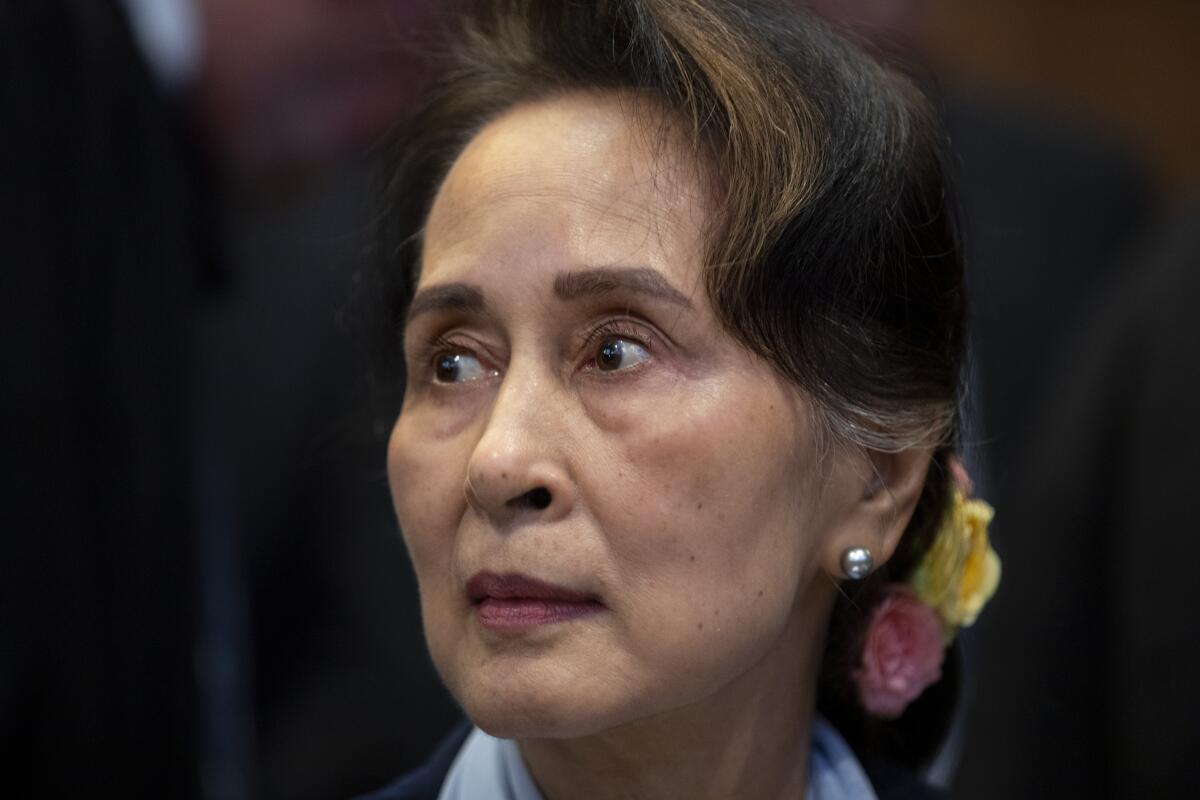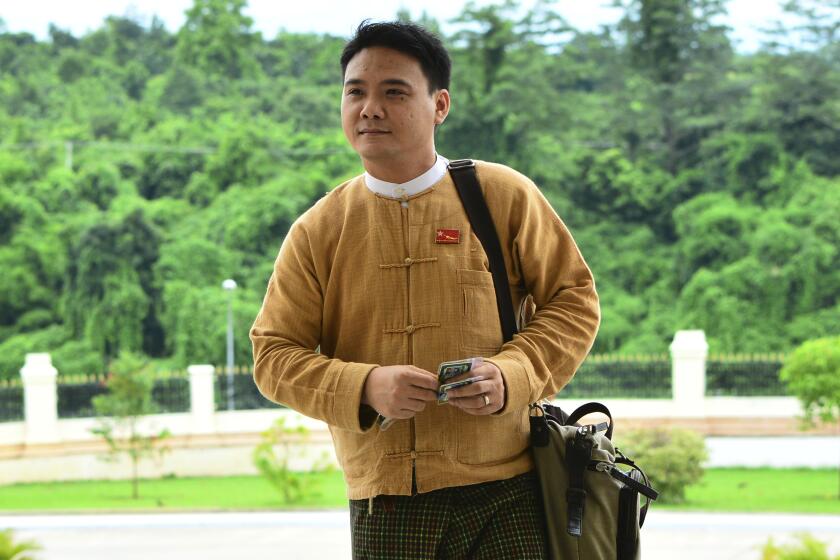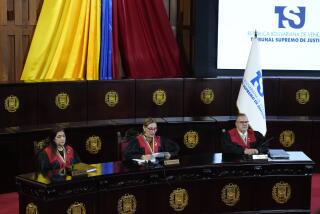Myanmar court convicts Aung San Suu Kyi of vote fraud, adding to her prison time

BANGKOK — A court in Myanmar on Friday sentenced ousted leader Aung San Suu Kyi to three years’ imprisonment with labor after finding her guilty of election fraud, adding more jail time to the 17 years she is already serving for other offenses alleged by the military government.
The latest verdict also carries potentially significant political consequences for Suu Kyi’s National League for Democracy party by lending support to the government’s threats to dissolve it before a new election promised for 2023.
Suu Kyi’s party won the November 2020 general election by a landslide, but the army seized power the following February and kept her from a second five-year term in office.
The army contends that it acted because of alleged widespread fraud in the polls, even though independent election observers did not find major irregularities.
Some critics of Senior Gen. Min Aung Hlaing, who led the takeover and is now Myanmar’s top leader, believe he acted because the vote thwarted his political ambitions.
A spokesperson for the Bangkok-based Asian Network for Free Elections, a nonpartisan poll-watching group, said Friday that it did not observe election fraud.
“Domestic election observers from Myanmar also did not see that,” Amael Vier told the Associated Press. “There were improvements to be made, for sure — we were still coming from a long way behind other democracies, in Myanmar — but the claims of the junta that 25% of voters were fraudulent? This does not hold up to our scrutiny, for sure.”
The military’s seizure of power prompted widespread peaceful protests that were quashed with lethal force, triggering armed resistance that some United Nations experts now characterize as civil war.
The executions, detailed in the state-run Mirror Daily newspaper, were carried out despite worldwide pleas for clemency for the four political prisoners.
Suu Kyi had already been sentenced to 17 years in prison on charges of illegally importing and possessing walkie-talkies, violating coronavirus restrictions, sedition and five counts of corruption. Many top members of her party and government also have been jailed, while others are in hiding or have fled abroad.
Suu Kyi’s supporters and independent analysts say the charges against her are politically motivated and an attempt to discredit and keep her from returning to politics while legitimating the military’s seizure of power. All her trials have been held in closed courts.
Friday’s ruling by the special court at the prison in the capital, Naypyidaw, was conveyed by a legal official who insisted on anonymity for fear of being punished by the authorities, who have restricted the release of information about Suu Kyi’s trials. He said all the defendants appeared in good health.
He said that ousted President Win Myint and the former minister of the president’s office, Min Thu, both co-defendants in the election fraud case, each received sentences of three years.
All three received prison terms with labor, a category of punishment that can include hard labor, such as road-building, but in this case does not, he said. Lawyers will file appeals in the coming days, he added.
Thailand’s deportation of thousands of refugees back to Myanmar goes against international laws on the return of people whose lives may be in danger.
The election fraud charge against Suu Kyi was filed in November by the Election Commission, whose members were replaced by the military after it seized power.
It charged that Suu Kyi and her colleagues violated provisions in the constitution by allegedly influencing the old commission.
The military-appointed commission accused them of being “involved in electoral processes, election fraud and lawless actions” related to the election. The commission claimed to have found more than 11 million irregularities in voter lists that could have let voters cast multiple ballots or commit other fraud.
Thein Soe, the new Election Commission chief, has said his agency would consider dissolving Suu Kyi’s party, alleging that it had worked illegally with the government to give itself an advantage at the polls.
Breaking News
Get breaking news, investigations, analysis and more signature journalism from the Los Angeles Times in your inbox.
You may occasionally receive promotional content from the Los Angeles Times.
State media reported after a meeting two months ago of the ruling National Defense and Security Council that 2,417 officials had been prosecuted for failing to supervise the electoral processes and action was underway to prosecute voters who cast ballots more than once.
The Election Commission has also warned that Suu Kyi’s party would be disbanded if it did not submit its financial accounts and expenses for inspection.
The commission said it was examining political parties to see whether they were maintaining and using funds in accordance with the law.
In separate proceedings, Suu Kyi is being tried on a charge of violating the Official Secrets Act, which carries a maximum sentence of 14 years, and seven counts of corruption, which carry a maximum sentence of 15 years each.
More to Read
Sign up for Essential California
The most important California stories and recommendations in your inbox every morning.
You may occasionally receive promotional content from the Los Angeles Times.












